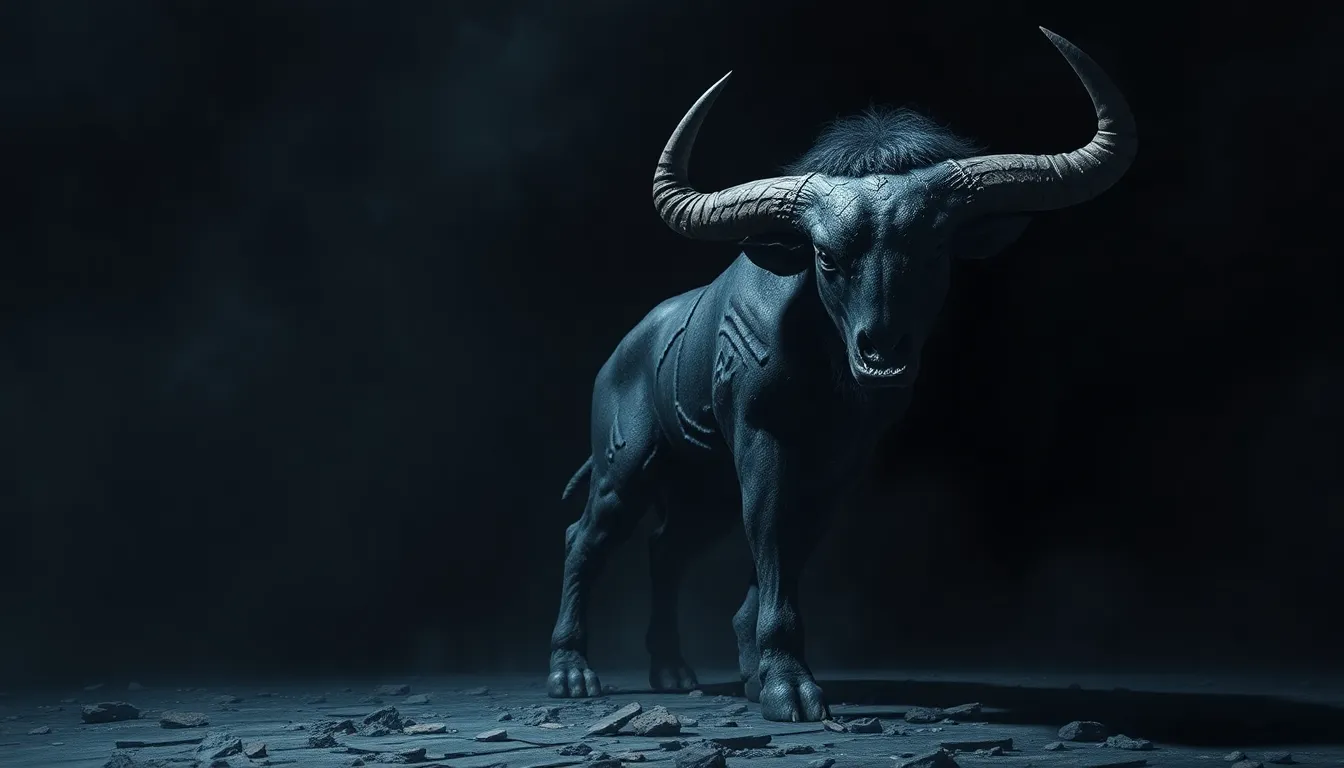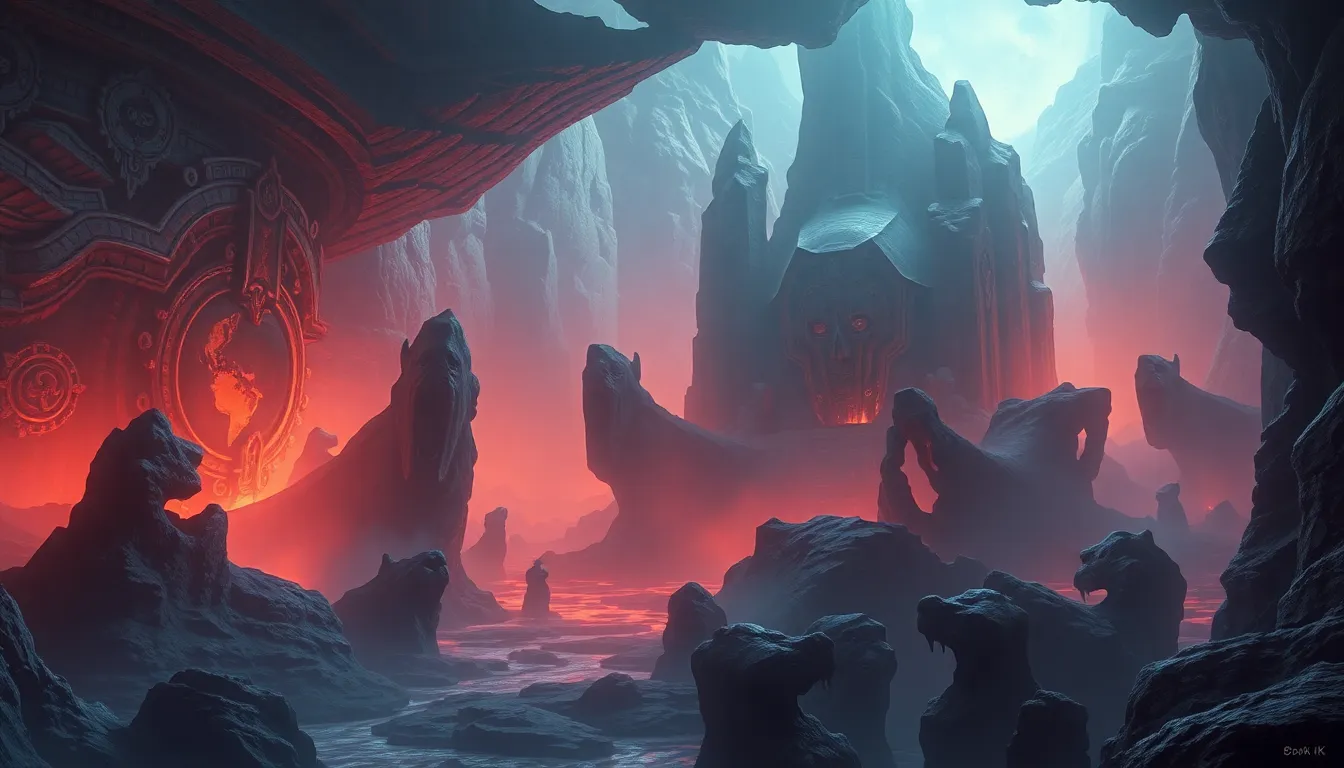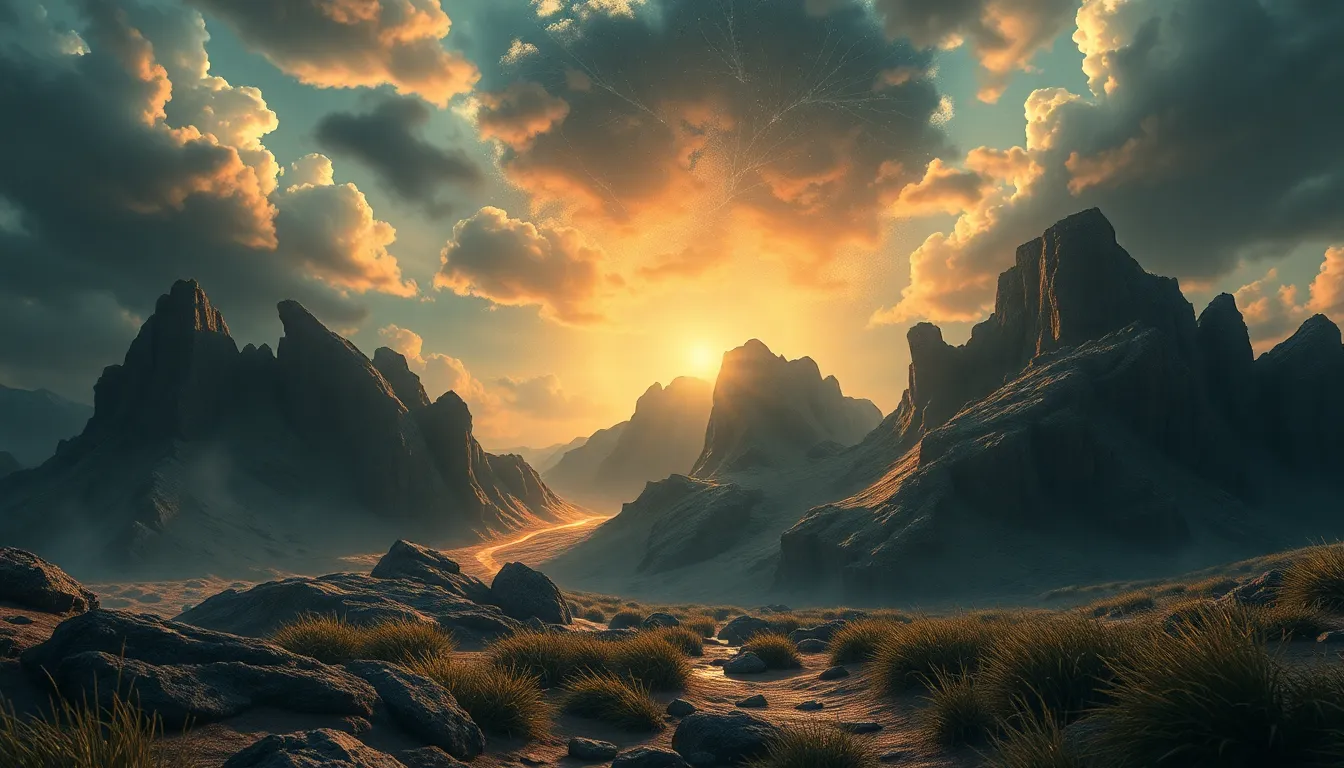The Clash of Deities: Epic Battles of Mythology!
Introduction to Mythological Warfare
Mythology has served as a cornerstone of cultural narratives across civilizations, weaving tales that explain the unexplainable, embody moral lessons, and reflect societal values. Central to many mythological stories are the deities, who not only represent various aspects of existence but also play critical roles in the anthropological fabric. The epic battles fought between these divine beings not only showcase their immense power but also symbolize the struggles between good and evil, order and chaos, and life and death. Through these conflicts, societies have sought to understand their own realities, moral dilemmas, and the nature of the universe.
Theoretical Framework: Understanding Divine Conflicts
Divine conflicts in mythology often revolve around potent themes such as power, justice, and chaos. Analyzing these themes provides insight into the cultural psyche of ancient civilizations and their understanding of the world. Battles between gods often symbolize:
- Power: The quest for dominance and supremacy among deities reflects the human struggle for power and control.
- Justice: Many mythological battles are fought to restore balance, often showcasing the moral struggles inherent in human society.
- Chaos: The tension between order and chaos is a recurring theme, with deities representing opposing forces.
The implications of these divine conflicts extend beyond the mythological realm, influencing the belief systems of ancient cultures and shaping their understanding of morality, governance, and existence itself.
Greek Mythology: The Titanomachy and the Rise of Olympus
One of the most significant conflicts in Greek mythology is the Titanomachy, the war between the Titans and the newly ascendant Olympian gods. This epic battle was characterized by central figures such as:
- Cronus: The leader of the Titans who feared being overthrown by his own children.
- Zeus: The youngest son of Cronus, who led the revolt against his father.
The Titanomachy lasted for ten years and culminated in the victory of the Olympians, leading to the establishment of Zeus as the ruler of the gods. This conflict not only marked the transition from the old order of Titans to the new order of Olympian deities but also set the stage for future mythological tales and the complex interactions among gods and mortals. The aftermath of this war reinforced the themes of power and justice that permeate Greek mythology.
Norse Mythology: Ragnarok—The End of Days
In Norse mythology, Ragnarok represents the cataclysmic series of events leading to the death of many gods, including Odin and Thor. This apocalyptic battle is significant for several reasons:
- Main Deities Involved: Odin, Thor, Loki, and many others play pivotal roles in the conflict.
- Cycles of Destruction and Rebirth: Ragnarok emphasizes the cyclical nature of existence, where destruction is a precursor to rebirth.
As the final battle unfolds, various creatures and deities clash, resulting in significant loss yet ultimately paving the way for a new world. This narrative illustrates the Norse belief in fate and the inevitability of change, resonating deeply with their understanding of life and death.
Hindu Mythology: The Divine War of the Mahabharata
The Mahabharata, one of the longest epics in the world, centers around the Kurukshetra War, a conflict that incorporates divine interventions and moral dilemmas. Key figures include:
- Krishna: The divine charioteer who guides Arjuna.
- Arjuna: A warrior prince faced with ethical quandaries about duty and righteousness.
The lessons from this epic extend beyond the battlefield, as they explore profound themes of dharma (duty/righteousness) and the consequences of war. Krishna’s guidance to Arjuna illustrates the complexities of moral choice and the divine’s role in human affairs.
Egyptian Mythology: The Battle of Set and Horus
In Egyptian mythology, the fierce battle between Set and Horus symbolizes the struggle for supremacy and the eternal conflict between chaos and order. Key aspects of this myth include:
- Set: The god of chaos and disorder, who seeks control over the land.
- Horus: The god of the sky and order, representing rightful kingship.
The outcome of their battle is crucial for the restoration of Ma’at, the ancient Egyptian concept of truth and order. The symbolism within this myth reflects the Egyptians’ values regarding governance and morality, stressing the importance of balance in society.
Mesopotamian Myths: The Epic of Gilgamesh and Divine Rivalries
The Epic of Gilgamesh provides insights into the relationship between gods and humanity. Throughout the narrative, Gilgamesh confronts various divine beings, highlighting themes of mortality, heroism, and the quest for immortality. Key elements include:
- Divine Rivalries: Gilgamesh’s encounters with gods such as Enkidu and Ishtar showcase the tension between human ambition and divine will.
- Mortality: The epic grapples with the human condition and the inevitability of death, prompting reflections on legacy and remembrance.
This ancient text illustrates how Mesopotamian cultures viewed their relationship with the divine and the lessons learned from their struggles.
Celtic Mythology: The Tuatha Dé Danann and Their Battles
The Tuatha Dé Danann, a race of deities in Celtic mythology, engaged in numerous battles, particularly with the Fomorians. Significant aspects of these conflicts include:
- Land and Power: The struggles often revolved around control of territory and the balance of power.
- Mythological Heroes: Figures such as Lugh and Cú Chulainn played pivotal roles in these divine conflicts, showcasing heroism and valor.
These battles reflect the Celtic understanding of the interplay between fate, destiny, and the divine, emphasizing the importance of land and kinship in their culture.
The Influence of Mythological Battles on Modern Culture
The epic battles between deities in ancient mythology continue to resonate in modern culture, influencing literature, film, and art. Themes of conflict, heroism, and morality endure as powerful narratives that shape our understanding of human experience. Contemporary adaptations often draw parallels between ancient myths and modern societal issues, exploring the timeless nature of these conflicts.
In conclusion, the epic battles of mythology offer profound insights into the values, fears, and aspirations of ancient cultures. Through the lens of divine conflict, we can explore the complexities of existence and the enduring human quest for meaning.



